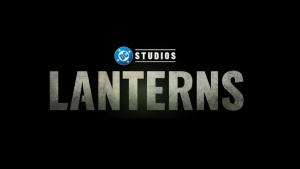Dungeons & Dragons are using their wallets to voice their displeasure with changes to the open license that allows other publishers to make Dungeons & Dragons-compatible tools. After news leaked about planned changes to the Open Gaming License (OGL for short) that allows creators and publishers to make Dungeons & Dragons-compatible material, fans started a campaign to cancel their D&D Beyond subscriptions. It’s unclear how many players have actually done so, but D&D Beyond’s subscription management page was periodically down on Thursday, with a “500 Internal Server Error” message showing.
Videos by ComicBook.com
The campaign was started when an email from a reported Wizards of the Coast employee reached out to the creator of D&D Shorts and claimed that subscriptions were the main metric Wizards of the Coast executives were using to monitor the ongoing OGL situation. While ComicBook.com was unable to independently confirm the authenticity of the email, but it does match what sources connected to Wizards of the Coast have previously said about D&D Beyond subscriptions. Wizards of the Coast executives have previously spoken about the importance of D&D Beyond to their plans for Dungeons & Dragons, specifically citing the customer metrics and information it gives to the company. io9 also reported that the subscriptions were having an impact at Wizards, as executives were forced to delay a plan rollout of the new OGL (called OGL 2.0) as a result of the campaign.
A #StoptheSub hashtag had generated 21,700 tweets as of Friday morning, with many prominent D&D personalities encouraging their followers to join the grassroots campaign. Among those personalities was Ginny Di, who Wizards of the Coast hired to announce the next edition of D&D in a video last year.
The Open Gaming License acts as an open license to use game rules, phrases, and mechanics in third-party material. Wizards of the Coast created the OGL in 2000 and has used it and the accompanying Systems Reference Document (SRD) to dictate what can and can’t be used in third-party D&D material. The OGL setup has been mutually beneficial for Dungeons & Dragons and other creators. While other creators can make D&D-compatible material, the OGL helped to expand D&D’s marketshare by a significant degree and provided Wizards of the Coast with a wide variety of freelancers and designers to call upon when making official D&D books.
Many other tabletop publishers have announced their plans to stop publishing D&D 5E material in the coming months as the result of planned changes to the OGL, which included a “de-authorization” of previous versions of the OGL and a royalty fee structure. Additionally, Paizo Publishing announced plans to develop a new Open RPG License (called the ORC for short) which would be held by a non-profit and could be used by any publisher to authorize third-party content creation.








